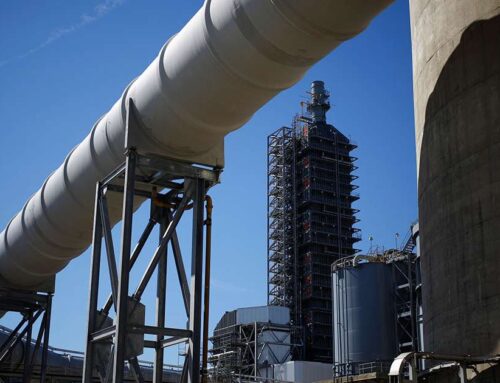Federal ban spells trouble for hemp industry
November 19, 2025
Vermont’s hemp industry is facing an uncertain future, following the passage of a recent federal ban on products containing more than 0.4 milligrams of THC. The ban was a surprise provision within the recently passed federal spending bill (H.R. 5371), which was signed into law by President Donald Trump on Wednesday, Nov. 12, marking the end to the longest government shutdown in history.
Hemp products were previously legalized under the 2018 Farm Bill, allowing for industry growth, and classified hemp as containing less than 0.3 percent by weight, as opposed to total amount. The 28 billion dollar national retail market is projected to face a ninety five percent loss as a result of the ban.
While recreational Cannabis has been legal at the state level in Vermont since 2018 through state legislative action, Vermont’s hemp industry is slated to experience significant hardships. Statewide hemp growers earn a significant portion of revenue through out-of-state sales.
While Vermont growers will still be able to cultivate hemp in the state, the product will be considered Cannabis at the federal level, according to Cannabis Control Board (CCB) Chair James Pepper.
“For many hemp growers in the state, if this were to go into effect as passed, it would essentially put the brakes on their entire operation, and this will be a whole new reality for them,” said Pepper.
Pepper said that the federal ban could possibly erode the state’s incentives to grow hemp.
“It is very hard to say how this will play out going forward, or if the existing hemp producers will even want a state solution. What seems plain from the law is that states can individually regulate hemp but it will be considered Cannabis at the federal level. The question becomes if there will still be an incentive to grow low THC hemp when you can grow 100% the THC by growing Cannabis,” said Pepper.
“The incentive structure was that hemp processors, as opposed to full Cannabis growers, could write off their business expenses on federal tax returns without being impacted by federal restrictions that fall on the legal cannabis market. You can get traditional insurance and traditional banking. Without those incentives, hemp growers may decide that they might as well just transition into producing legal cannabis instead,” added Pepper.
Sam Bellavance, the Founder and Executive Director of Sunset Lake CBD is concerned about the future of his operations following the passage of the ban. Bellavance started Sunset Lake CBD in 2018 as an effort to diversify products of Sunset Lake Farm, Bellavance’s family farm.
“What has made our farm really special is how we’ve taken the farm’s longstanding relationship with agriculture and dairy farming, and diversifying into hemp. It’s helped to make the farm more sustainable. We’ve been able to sell our products in all fifty states, and our best sellers have been products that contain naturally occurring CBD and THC,” said Bellavance.
“I’m worried with this new legislation that these full-spectrum CBD products could be made illegal now, and that would hurt our business quite a bit. I think hemp has been under attack at the state and federal level for a number of years now,” added Bellavance.
Bellavance said he is skeptical of the industry’s ability to weather the incoming legal restrictions.
“I don’t think we can operate under the assumption that hemp growers are going to be able to easily and seamlessly transition to Vermont’s recreational cannabis market. I think what is more likely is that we will see a lot of businesses either go bankrupt or start growing another crop,” said Bellavance.
Sunset Lake CBD Director of Marketing Rev. J.S. Baker provided an email statement to Green Mountain Vermont Cannabis News.
“This new hemp ban is a regressive step backward toward Prohibition of a plant that has been used safely by humans for over ten thousand years. This new law will ban full-spectrum CBD products which are used by millions of Americans. This is a huge blow to our small company as most of our portfolio is full-spectrum CBD products which contain trace amounts of THC below the 0.3% THC threshold established by the 2018 Farm Bill. As a result, we will need to reformulate most of our products to be compliant with the new regulations, resulting in a large financial burden and vastly diminished national market to sell our hemp crop. Unless Federal legislators move quickly to change the law before its implementation in November 2026, the ban will be devastating to small Vermont hemp farmers like us and to the millions of Americans who rely on full-spectrum CBD products for relief,” said Baker.
Search
RECENT PRESS RELEASES
Related Post



